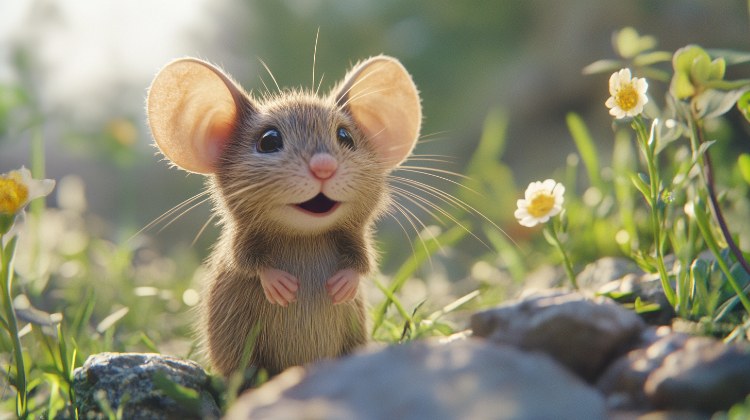How Long Do Mice Live? Understanding the Lifespan of These Small Creatures
Mice are small, agile creatures that have captured human curiosity for centuries. Whether kept as pets, studied in scientific research, or seen as unwelcome guests in homes, understanding the lifespan of mice is important for various reasons. So, just how long do mice live? Let’s explore the factors that influence the life expectancy of these tiny rodents.

1. Average Lifespan of Mice
In general, the lifespan of a mouse varies depending on its environment. Wild mice typically live for about 6 months to 1 year due to threats like predators, harsh weather, and scarcity of food. However, in more controlled environments, such as captivity, mice can live longer. Pet mice, for example, can live for 1.5 to 3 years on average if given proper care, nutrition, and a safe environment.
2. Factors Influencing Mouse Lifespan
Several factors can impact the longevity of a mouse’s life:
- Diet and Nutrition: Mice with access to a balanced diet rich in nutrients tend to live longer. Pet mice fed with quality food and supplements generally have better health and a longer lifespan.
- Living Conditions: The environment in which a mouse lives plays a crucial role in its life expectancy. A clean, safe, and stress-free habitat can help mice live longer, whereas unsanitary or stressful conditions can shorten their lives.
- Genetics: Just like humans, mice are also influenced by their genetic makeup. Some mice are naturally more resilient due to their genetics, which can contribute to a longer life.
- Predators and Disease: In the wild, mice face threats from predators like cats, birds, and snakes, as well as from diseases. These dangers significantly reduce their lifespan compared to their pet counterparts.
3. Differences Between Wild and Pet Mice
The disparity in lifespan between wild and pet mice is substantial. Wild mice must constantly be on the lookout for predators and compete for food, making survival a challenge. On the other hand, pet mice are protected from these dangers and benefit from human care, which includes regular feeding, protection from predators, and medical attention if needed.
Laboratory mice, which are specifically bred for research, also have controlled lifespans that can extend up to 2-3 years, as they are kept in ideal conditions to ensure reliable research outcomes.
4. How to Increase the Lifespan of Pet Mice
If you have pet mice and want to help them live as long as possible, here are a few tips:
- Provide a Balanced Diet: Feed your mice high-quality food and fresh fruits and vegetables in moderation.
- Clean Their Habitat Regularly: A clean cage with fresh bedding helps prevent diseases and infections.
- Stimulate Their Environment: Mice are active and intelligent creatures. Providing toys, tunnels, and exercise wheels can keep them mentally and physically engaged.
- Regular Veterinary Check-ups: Just like other pets, mice can benefit from occasional health check-ups to prevent illnesses.
5. Conclusion: Appreciating the Life of a Mouse
Though small, mice have a significant impact on both ecological systems and human society. Whether as pets, research subjects, or wild creatures, understanding their lifespan helps us appreciate these resilient animals. While their time on earth may be short, with proper care and attention, pet mice can lead happy and healthy lives.
 LaydsVoa
LaydsVoa




